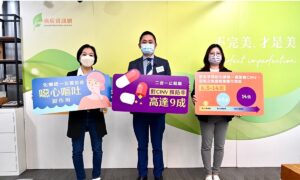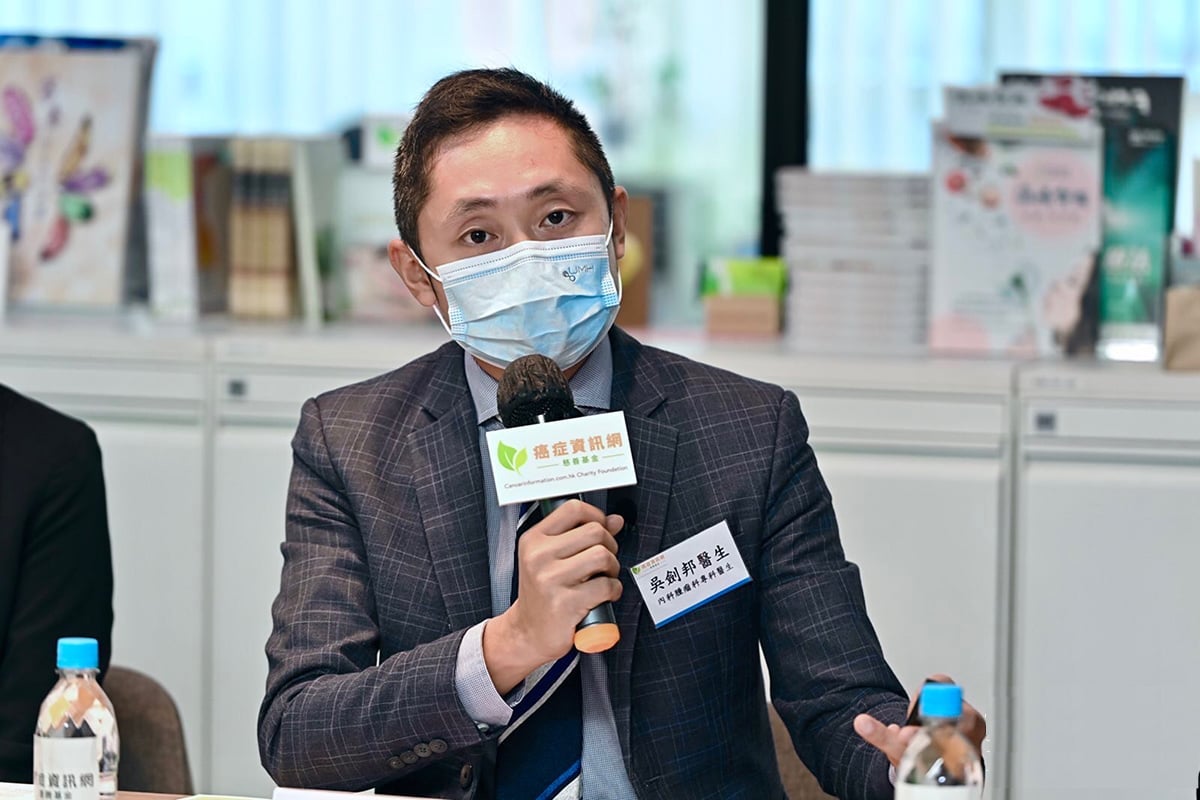Most Patients Unaware Chemotherapy-Induced Vomiting Can be Prevented
Chemotherapy is often used to treat various cancers; however, nausea and vomiting (CINV) are common side effects that can seriously interfere with the daily life of a patient. What most patients do not realize is that CINV is preventable. Using CINV prevention in the first week of chemotherapy effectively reduces the risk of CINV occurring in the subsequent chemotherapy cycles. The Cancer Information Charity Foundation (CICF) conducted an online survey in the third quarter of 2022. It asked 162 cancer patients aged 18 to 70 about the side effects of CINV and their understanding and awareness of preventative drugs. A total of 86 percent of the respondents had received chemotherapy in the past three years, of which 71 percent were female. Breast cancer was the most common cancer treated with chemotherapy at 41 percent, followed by colorectal cancer or colon cancer at 17 percent. The survey showed that nearly 80 percent of the interviewees experienced CINV after receiving the drugs. Among these patients, people under the age of 50 were more likely to experience CINV; and vomiting is common among those who use high Human Equivalent Concentration (HEC) and moderate Minimum Effective Concentration (MEC) chemotherapy drugs. Of the respondents, 70 percent said that side effects, such as CINV, usually occur within the second and fifth day after a chemotherapy session. More patients suffer from chronic rather than acute vomiting that occurs within 24 hours after a session. At 97 percent, almost all the patients interviewed said that CINV had the biggest impact on their diet. Seventy-five percent of respondents said the side effects reached a severe level. If any CINV side effects occur after chemotherapy, over 90 percent of the interviewees expressed that they would seek assistance from medical staff. Only 25 percent of the respondents believed that side effects, such as CINV, were preventable, and over 40 percent thought chemotherapy side effects were inevitable. Internal Medicine Oncology Specialist Dr. Kenny Ng Kim-pong. (Sung Pi-Lung/The Epoch Times) Internal Medicine Oncology Specialist Dr. Kenny Ng Kim-pong pointed out that acute emesis (severe vomiting) may lead to critical consequences such as dehydration, electrolyte imbalance, nutrition deficiency, anxiety, low-performance status, and wound dehiscence (opening). It can also cause cardiac mucosal laceration syndrome, also known as Mallory-Weiss syndrome, when tears occur at the gastroesophageal junction. Dr. Ng said the medical survey showed that if chemotherapy-induced nausea and vomiting occur in the first treatment cycle, the probability of CINV in the second cycle will increase by 6.5 times, and the likelihood of CINV in the third cycle will increase drastically by 14 times. Therefore, early prevention of CNIV in the first cycle can effectively reduce the risk of CINV occurring in the subsequent chemotherapy cycles. Currently, the international guide recommends a triptych plan using type 5-HT3 5-receptor antagonists, NK-1 receptor antagonists, and corticosteroids. Patients are only required to take one capsule on the first day of each chemotherapy cycle.

Chemotherapy is often used to treat various cancers; however, nausea and vomiting (CINV) are common side effects that can seriously interfere with the daily life of a patient.
What most patients do not realize is that CINV is preventable.
Using CINV prevention in the first week of chemotherapy effectively reduces the risk of CINV occurring in the subsequent chemotherapy cycles.
The Cancer Information Charity Foundation (CICF) conducted an online survey in the third quarter of 2022. It asked 162 cancer patients aged 18 to 70 about the side effects of CINV and their understanding and awareness of preventative drugs.
A total of 86 percent of the respondents had received chemotherapy in the past three years, of which 71 percent were female.
Breast cancer was the most common cancer treated with chemotherapy at 41 percent, followed by colorectal cancer or colon cancer at 17 percent.
The survey showed that nearly 80 percent of the interviewees experienced CINV after receiving the drugs. Among these patients, people under the age of 50 were more likely to experience CINV; and vomiting is common among those who use high Human Equivalent Concentration (HEC) and moderate Minimum Effective Concentration (MEC) chemotherapy drugs.
Of the respondents, 70 percent said that side effects, such as CINV, usually occur within the second and fifth day after a chemotherapy session. More patients suffer from chronic rather than acute vomiting that occurs within 24 hours after a session.
At 97 percent, almost all the patients interviewed said that CINV had the biggest impact on their diet.
Seventy-five percent of respondents said the side effects reached a severe level.
If any CINV side effects occur after chemotherapy, over 90 percent of the interviewees expressed that they would seek assistance from medical staff.
Only 25 percent of the respondents believed that side effects, such as CINV, were preventable, and over 40 percent thought chemotherapy side effects were inevitable.
 Internal Medicine Oncology Specialist Dr. Kenny Ng Kim-pong. (Sung Pi-Lung/The Epoch Times)
Internal Medicine Oncology Specialist Dr. Kenny Ng Kim-pong. (Sung Pi-Lung/The Epoch Times)
Internal Medicine Oncology Specialist Dr. Kenny Ng Kim-pong pointed out that acute emesis (severe vomiting) may lead to critical consequences such as dehydration, electrolyte imbalance, nutrition deficiency, anxiety, low-performance status, and wound dehiscence (opening).
It can also cause cardiac mucosal laceration syndrome, also known as Mallory-Weiss syndrome, when tears occur at the gastroesophageal junction.
Dr. Ng said the medical survey showed that if chemotherapy-induced nausea and vomiting occur in the first treatment cycle, the probability of CINV in the second cycle will increase by 6.5 times, and the likelihood of CINV in the third cycle will increase drastically by 14 times.
Therefore, early prevention of CNIV in the first cycle can effectively reduce the risk of CINV occurring in the subsequent chemotherapy cycles.
Currently, the international guide recommends a triptych plan using type 5-HT3 5-receptor antagonists, NK-1 receptor antagonists, and corticosteroids.
Patients are only required to take one capsule on the first day of each chemotherapy cycle.







